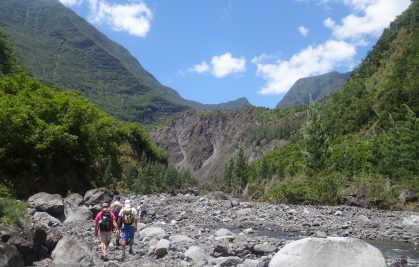Eric Gayer
Content / Work
Full website
Erosion is one of the most important processes in the evolution of Earth's surface. It sculpts the Earth's crust and shapes landscapes through its action on the Critical Zone, that thin layer where rock meets life—and in which we live. Analyzing and understanding the processes and controls that govern landscape evolution—i.e., erosion–Critical Zone relationships—is not only a matter of fundamental geoscience but also of societal relevance, since our societies directly depend on these relationships for water resources, biological and mineral resources, agriculture, and the management of natural hazards (floods, landslides, famines, epidemics), etc. To anticipate future challenges in managing our environment and to better answer questions about the consequences of erosion in the context of climate change, it is thus essential to understand erosional processes, to model them, and to characterize their controlling factors.Research Interests
- Quantifying erosion (mechanical erosion & chemical weathering).
- Characterization of erosion mechanisms in the Critical Zone.
- Characterization of erosion controls.
- Characterization of the societal impact of erosion processes.
Projects

ANR Plum-BeatR: Réunion Plume Beat and the Rheology of the Mantle
Plum-BeatR: Réunion Plume Beat and the Rheology of the Mantle Project funded by the French Agence Nationale de la Recherche (ANR), under grant “ANR- ...

PALAVAS: Present and pAst weathering fLuxes from tropicAl Volcanic islAndS
On the geologic time scale, chemical weathering of silicate rocks is the largest sink for atmospheric CO2. It has been suggested that the weathering o...




